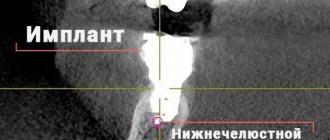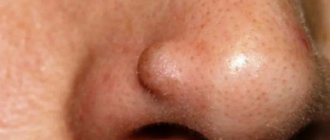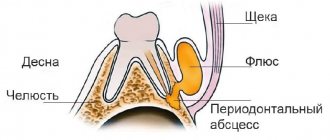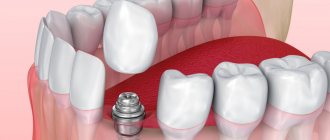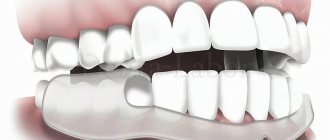September 22, 2020
Some people complain that their cheekbones are cramped. Typically, such a phenomenon cannot be classified as a specific diagnosis. Discomfort and pain in the cheekbones are, rather, a sign of various pathologies of the body. Which ones? Often we are talking about dental problems. The editors of the UltraSmile.ru portal have collected the most common of them in one article.
Some people complain that their cheekbones are cramped
Purulent infections in the mouth caused by advanced dental diseases
When the cheekbones and jaw are cramped, first of all, it is recommended to pay attention to the condition of the oral cavity. After all, an alarming symptom often indicates the following dental pathologies: acute periodontitis, gumboil, large cyst and granuloma, abscess, osteomyelitis and phlegmon.
During the development of these diseases, an inflammatory process occurs, severe swelling of the tissues, and pain and discomfort often spread to all nearby areas and do not have a clear localization. Unpleasant sensations manifest themselves even more strongly when pressing on a sore tooth, eating hard, hot and cold foods.
Eruption of third molar
So it’s not easy to immediately answer the question of why the cheekbones on the face are cramped. But if your wisdom tooth on the upper jaw begins to erupt, then it is very possible that this unpleasant phenomenon is associated with this. The fact is that third molars erupt very difficultly and for a long time, they have to pierce the jawbone, and their roots can touch the nerve endings, which leads to discomfort and cramps in the facial area.
The eruption of “figure eights” can cause this symptom
Against the background of the eruption of the “eight”, an acute inflammatory process can develop, when the gums above it become very swollen, red and sore. Often this is also accompanied by purulent pericoronitis, if bacteria and food debris penetrate under the mucosa.
Pain in the cheekbone area of the face can occur due to the fact that the “eight” does not have enough space on the jaw and it grows incorrectly, for example, it begins to oppress the seventh unit. As a result, this leads to compression of the roots of the “seven”, to the fact that it, in turn, begins to move towards neighboring teeth. Such movements provoke malocclusion, crowded teeth, dysfunction of the maxillofacial apparatus, and muscle spasms.
Why do muscles cramp?
The cause of muscle spasm is often not easy to determine.
In a significant number of cases, we have to talk about idiopathic muscle contraction (i.e., there is no obvious cause of the spasm). Muscle cramps during sports
usually caused by excessive or unusual load on a muscle (muscle group), dehydration and loss of calcium and potassium through sweat, and improper training.
The fact that muscles cramp in sleep
, as a rule, is explained by poor body position during sleep. When we sleep, our body is generally relaxed, but certain muscle groups experience increased stress; a long stay without movement does not allow this load to be redistributed to other muscles, which can lead to muscle cramps.
Most susceptible to muscle spasms:
- athletes;
- pregnant women;
- elderly people (this is due to weakening of muscle tissue - muscle atrophy);
- small children (first 3 years of life).
Factors contributing to muscle contraction are:
- overweight;
- heat;
- intoxication of the body (in case of an infectious disease, alcohol intoxication, etc.)
- certain medications (for example, hormonal contraceptives);
- leg diseases and some other diseases (liver cirrhosis, diabetes mellitus).
Tooth extraction and other surgical procedures
If, after visiting a dental office to remove a tooth and undergo large-scale surgical procedures in the oral cavity (multiple implantations, bone augmentation, vestibuloplasty), you have a headache, cramped cheekbones and jaws, and general weakness, this can be considered quite normal.
After complex removal, it can also reduce cheekbones
Firstly, you experienced nervous tension and stress. Secondly, they sat for a long time with their mouths open (especially if the procedure was complex), and accordingly, during this time the muscles became numb and tired. Thirdly, during the surgical intervention a traumatic effect was exerted on the tissue, after which a normal physiological reaction occurred. At the same time, unpleasant sensations in the first day after medical manipulations often radiate to the head, jaw, and face.
If after 1-3 days the cheekbones cramp and the jaw hurts, other alarming symptoms also appear and increase (swelling, bleeding, increased body temperature), then the reasons should be sought in postoperative complications: alveolitis, gumboil, abscess, phlegmon. In this case, you should immediately consult a doctor.
Malocclusion
When aching pain in the cheekbones of the face and jaw occurs on a constant basis (they always seem to be present in the general background), this may signal that you have a malocclusion. If abnormalities are not corrected for a long time and treatment by an orthodontist is not performed, this leads to asymmetric contraction of the muscles of the jaws and neck, and uneven distribution of the chewing load. The cheekbones and temples begin to shrink, headaches, a feeling of tension and discomfort in the face appear.
An incorrect bite can also lead to this problem.
“When I first got braces, when I put pressure on my teeth, at first there was such a sharp pain that it made my cheekbones cramp and brought tears to my eyes. True, as soon as the pressure disappeared, everything immediately returned to normal. During the first month, I probably felt tension all over my face and jaw, but my doctor said that this was normal and would pass soon. And indeed, gradually these sensations stopped bothering me, I got used to it!”
Renakona Elena, review from 32top.ru
Muscle spasm
Probably every person has experienced muscle cramps at some point. In medical parlance, this condition is called “muscle spasm.”
Our muscles are constantly under tension; Thanks to muscles, our body moves, maintains its shape, muscle contractions ensure the functioning of many internal organs and systems of the body. But sometimes muscles contract unnecessarily, involuntarily, and such contraction can be painful. The spasm can affect any skeletal muscle of the musculoskeletal system, but the gastrocnemius muscle (the muscle of the back of the lower leg) and the thigh muscles are most often affected.
The muscle can cramp during increased stress (for example, when playing sports) or at rest (when sitting at a computer or while sleeping).
Unsuccessful dental treatment and prosthetics
Why else do the cheekbones on your face shrink? From fillings and orthopedic structures installed in the oral cavity that do not correspond to the individual anatomical characteristics. In this case, again, the load is distributed incorrectly, certain areas are overstrained, the normal functionality of the maxillofacial apparatus is disrupted, muscle hypertonicity and even jaw trismus occurs.
The presence of orthodontic structures in the mouth can provoke a problem
To avoid the problem, you need to go to clinics where experienced doctors work, and also carry out comprehensive functional diagnostics (ideally, if digital!) immediately before treatment. All this allows us to create not only beautiful, but also the most convenient and comfortable restorations for the patient, which will eliminate the occurrence of additional problems and help correct the slightest pathologies and deviations in the functioning of the jaw.
Sometimes the cause of the problem is simply unskilled and too traumatic actions on the part of the doctor performing medical procedures. The specialist could give an incorrect injection of anesthesia, have too strong an effect on the surrounding tissues, or perforate the root or even the maxillary sinus during a particular procedure.
Bruxism or involuntary jaw clenching
When doctors explain to patients why the cheekbones on the face are cramped, many are surprised that the causes of the pathology may lie in bruxism. Although there is nothing unusual about this. This disease causes involuntary clenching of the jaws, overexertion, overload and spasms, pain and discomfort in the muscles.
Bruxism manifests itself in full glory while you sleep. But in the morning, many patients with this diagnosis feel tired, they have a headache and jaw pain, and there is a feeling that their teeth and cheekbones are cramping. A dentist will help you get rid of the problem by prescribing special mouth guards that relax your muscles while you sleep. But in order to cure the disease itself, it is recommended to undergo examination by a neurologist, since neurological causes often lead to the development of bruxism.
Bruxism can also cause discomfort
Bruxism is not exactly a dental disease. But in some cases it can be triggered by pathologies in the oral cavity: malocclusion, the presence of decayed teeth, poorly fitting crowns and fillings. Bruxism also leads to a number of dental problems if left untreated: cracking, pathological abrasion and hypersensitivity of enamel, deformation of artificial crowns and other prostheses.
How to improve your appearance after coding
If you apply it to the bottle frequently, you can forget about its impeccable appearance. The problem is aggravated by the fact that cosmetics are not able to cope with appearance defects. A thick layer of foundation only further accentuates imperfections. Excessive consumption of strong alcoholic drinks is the enemy of beauty.
The so-called “alcoholic face” in many cases haunts a person who has recovered from addiction for many years, sometimes remaining with him forever. Much depends on what stage of development the disease was at, the duration of its course, genetic characteristics, and the age of the person. It's not that easy to get back into shape. Some manage to get rid of their drunken face within six months after recovery, while others have to struggle with the external manifestations of the disease all their lives.
Coding is the first step towards getting rid of the disease. However, even after overcoming addiction, a person will have to face the consequences in the form of deterioration in appearance. The recommendations of doctors and cosmetologists on how to correct the face of an alcoholic are as follows:
- lymphatic drainage procedures and massage will help remove excess fluid from the intercellular space and get rid of swelling;
- therapy using biomicrocurrents will improve muscle tone;
- Laser therapy reduces spider veins.
Noticeable improvements in appearance appear only 2-3 years after treatment for alcoholism. However, medical procedures will help speed up recovery.
It is quite difficult to restore the original appearance to a person who has been abusing alcohol for more than 3 years. Strictly following the recommendations of doctors and cosmetologists will improve your appearance.
However, the first and main step is a complete abstinence from alcohol! And we can help with this.
Non-dental reasons
We looked at the main dental pathologies that may explain why the cheekbones on the face are cramped. But there are also many diseases and problems not related to teeth and the oral cavity. We list them below:
- injuries, bruises and blows received in the area of the face and maxillofacial apparatus: if the injury is very severe, for example, a fracture, then you may experience a feeling of cramping of the cheekbones and nausea,
- sedentary lifestyle and lack of physical activity: a number of researchers have come to the conclusion that with reduced physical activity, a person’s blood circulation is impaired, and this can lead to periodic cramping of the cheekbones, jaw and temples,
- hypoparathyroidism1: a disease caused by dysfunction of the parathyroid glands, leading to disruption of the metabolism of calcium and phosphorus in the body. It not only causes cramps in the jaws and cheekbones, but also causes muscle cramps in the lower and upper extremities,
- vegetative-vascular dystonia and other pathologies of the cardiovascular system,
- nervous tension, fear and stress, panic attacks,
- inflammation of the trigeminal and auricular nerves,
- ENT diseases: sinusitis, otitis, sinusitis,
- hypertensive crisis,
- frequent yawning,
- arthritis and arthrosis,
- osteochondrosis,
- oncology.
A blow to the jaw can cause a problem.
The problem does not always arise against the background of some serious pathologies, although, of course, its systematic appearance, or the persistence of a symptom for a long time, should be a reason to consult a doctor. Sometimes there is a feeling that your cheekbones are cramping after eating very acidic foods and drinks, because then salivation sharply increases and a reflex contraction of the jaw and parotid muscles occurs, which leads to a similar phenomenon.
Notice
: Undefined variable: post_id in
/home/c/ch75405/public_html/wp-content/themes/UltraSmile/single-item.php
on line
45 Notice
: Undefined variable: full in
/home/c/ch75405/public_html/wp-content /themes/UltraSmile/single-item.php
on line
46
Rate this article:
( 3 ratings, average: 5.00 out of 5)
prevention
- Farkhutdinova L.M., Ivanova M.A., Tunik V.F. Hypoparathyroidism: modern concepts and analysis of a clinical case // Archives of Internal Medicine. – 2016.
Expert “Advanced dental diseases often lead to ENT pathologies, since bacteria from the mouth easily move to adjacent organs, where they provoke inflammatory processes. Why, for example, do some patients have cramping cheekbones when they have diseased teeth in the upper jaw? The reasons may lie in damage to the sinuses and the development of odontogenic sinusitis. It arises from deep caries, pulpitis, cysts, periodontitis. Against this background, swelling of the surrounding tissues, numbness, pain and spasms appear, radiating to all parts of the face and jaw.” Dentist-therapist Elena Vladimirovna Orlova
Reason 1: dental problems
Admit it, do you visit the dentist on time and are you aware of all your problems with your teeth and gums? If not, then keep in mind that if they are present, the jaw cramps quite often; this manifestation, depending on the cause and location of the “problem,” can be accompanied by increased body temperature and even pain, which can be quite sharp, throbbing or pulling. So, why does the lower or upper jaw reduce:
- caries, pulpitis, periodontitis, gingivitis and periodontitis: untreated inflammatory processes in the mouth have never gone unnoticed for anyone. Bacteria that have settled in damaged elements of the dentition or on the gums will not stay in one place for long. In the absence of measures, they will not only destroy teeth, but will also continue to spread deep into the nerve endings, to the bone tissue of the jaw, provoking the appearance of pus, abscesses, osteomyelitis, phlegmon, body temperature, acute pain reaction and, of course, leading to what begins tighten your jaw. A feeling of discomfort in this case can manifest itself during mechanical influences on the tooth (during the process of eating and cleansing the oral cavity), during temperature stimuli, and even during sleep,
Pulpitis can cause problems - tooth extraction: this is a fairly serious operation, after which a completely natural reaction of the body is pain, which can radiate to the ears and head, which can cause the jaw to cramp. Ideally, all unpleasant symptoms should disappear within the first 3-5 days after tooth extraction, otherwise consult a doctor immediately,
- wisdom tooth cutting: This problem may also explain why your jaw is spasming. Be sure to consult a specialist to determine whether the third molar is dystopic or impacted (these two phenomena can occur simultaneously),
- malocclusion: in this state of affairs, you may develop a whole range of problems - headaches and jaw cramps, diseases of the gastrointestinal tract and dysfunction of the maxillofacial apparatus arise, problems with diction appear, posture is disturbed, facial asymmetry becomes noticeable, aesthetics are disturbed smiles, you cannot chew food fully,
Misaligned teeth lead to jaw problems - correction of the bite with braces or other orthodontic devices: in this case, if the jaw periodically cramps, there should be no concern. After all, such a sign indicates that the treatment is effective, the teeth and jaw joints are gradually shifting into a position that is still unusual for them. And this is the right path to achieving a positive result,
- tooth root fracture: due to injuries and falls, you could simply break a tooth. If in this case your jaw is cramped, the question of what to do should not arise - immediately go to the doctor.
The jaw can also cramp because a person suffers from bruxism. This problem is more of a neurological nature, but it needs to be solved in a complex manner, involving not only a neurologist, but also a dentist, since the enamel of the teeth of a patient with such a disease wears out very quickly due to nightly involuntary clenching of the jaws and grinding of teeth. Excessive pressure is also placed on the jaw joint and muscle corset, which can lead to severe overload.
Comments
My wisdom tooth is coming out because I feel a lump under my gum in that place. This seems to be causing my jaw to ache all the time lately. Is it really because of this that it will have to be removed now?
Dilyara (02.10.2020 at 16:15) Reply to comment
- Dear Dilyara, it all depends on the condition of the wisdom tooth. If it has the correct direction of growth, does not threaten neighboring elements of the row, and is not affected by caries and other dental diseases, then it does not need to be removed. However, it is recommended to monitor the process of its eruption over time. After all, it may also happen that it does not come to the surface at all or only partially, which often happens with third molars. See a doctor and take an x-ray to understand why the unpleasant symptom occurs, and then decide whether to remove or save.
Editorial staff of the portal UltraSmile.ru (06.10.2020 at 10:20) Reply to comment

